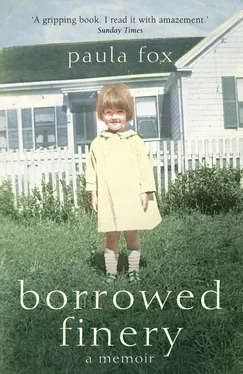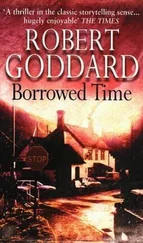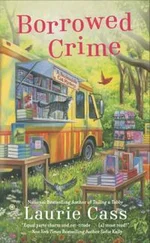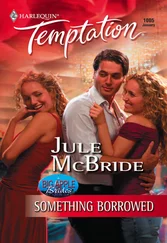When Grandfather Fox returned from Germany to the United States, he had been able to find work only as a traveling salesman, a drummer, selling medical supplies, going from town to town lugging a huge black sample case.
My grandmother’s tyrannical father had felt that his daughter had married beneath her when her husband became a traveling salesman, although when he was a philosopher he didn’t consider that she had.
One morning when my grandfather left the family home for a week of peddling in Pennsylvania, my father, then a small boy, hid behind a tree and threw an apple core at him, shouting, “Red! Red!” at his redheaded father. He desperately didn’t want him to go away on still another trip for what must have seemed to him a year.
Shortly after my grandfather’s visit, the minister drove me to Yonkers, to Warburton Avenue, where my Aunt Jessie Fox and my grandparents lived in a tall, narrow wooden house. I looked forward to the visit with curiosity and apprehension.
My aunt had thin freckled hands and a slight hump below her right shoulder, which gave her an air of impending wickedness. It was a result, Daddy said, of an early bout with tuberculosis. She smoked continually. Often, as she spoke, she twisted and twirled her hands about. She was ten years older than her brother, my father, and, like him, had a beautiful voice, but she talked constantly, and it became beautifully monotonous.
She led me through the many rooms of the house. They were either empty or crowded with furniture. In the long living room, on the wall behind a small sofa, hung a gold-framed mirror. It diminished the size of all that it reflected, and showed a scene as tiny and perfect and lifeless as a village inside a spun-sugar Easter egg I had once seen somewhere. When I looked away from it to the real room I was in, I realized how shabby and forlorn the furnishings were.
Someone very old was sitting in a large chair in front of a table at the end of the room. She was wrapped in many scarves and a blanket but had worked one of her arms loose so she could do the crossword puzzle in a newspaper that lay on her lap. From time to time, she raised her head and stared into the distance through thick-glassed spectacles.
“Here’s little Paula, Mother,” Aunt Jessie said.
The old woman made a comment. I’ve forgotten the words, but I recall her voice, soft and cold and small, a sound that might have issued from something that lived on the bottom of the sea.
Later that day, I sat at my aunt’s dressing table letting a necklace of bright glass beads flow from hand to hand. She told me the necklace had come from Venice, a city in Italy that floated upon water.
She spoke about my father’s restlessness when he’d been a boy. She had waked many mornings just before dawn to discover her little brother, unable to sleep through the night, curled up on the floor beneath her bed. On other nights, he slept under his parents’ bed. “Even in winter when it’s so cold?” I asked her, startled by the image of him in a nest of dust and cobwebs. “Even in winter,” she replied.
I noted that day how she spoke of men as “the little fellows,” but when she mentioned my father it was always by his name, Paul. “The little fellows came to repair our plumbing but they didn’t do so well,” she remarked when I told her that the faucet in the bathroom was leaking.
At one point, she recalled an incident that involved her brother and began to smile. When my father was ten or so, he was standing beside her at a window that looked out on the skimpy lawn at the front of the house. It was a summer evening, and she was waiting for a suitor to call. As the young man came into view, walking up the cement path to the porch, Paul, who had not seen him before, made a derisive remark about him.
My aunt had laughed. She was laughing as she told me about it, and had laughed as she had gone to the front door, opened it, and given the young man his “walking papers.” She could no longer remember his name.
My grandmother lived to be 101, kept alive, my father told me some years later, by his sister’s desperate measures. Jessie was like a living bellows, breathing air, day after day, into the ancient woman’s exhausted lungs. When her mother died, Jessie began to slide into a state of senile dementia and was taken off to a local nursing home where, unless restrained, she bit her nurses when they attended her. She was carried out of life one day in a fit of deranged anger. My grandfather had died in his eighties, long before his wife and daughter, from what, I don’t know; but I attributed to him as his last conscious emotion—unjustly, perhaps—relief at leaving behind him his deplorable family.
I drove past the house decades later. Warburton Avenue led to an old scenic drive along the east bank of the Hudson River. The front door was boarded up. It looked abandoned. I wondered who would be so desperate for housing that they would buy it.
A year passed between the long drive to Provincetown and several visits I made to apartments where my parents stayed in New York City, one visit to a rented cabin in the Adirondack Mountains, and a few hours in a restaurant on the Coney Island boardwalk, midday in the spring.
A scene occurred there that displayed the pleasure my mother, Elsie, took in her own mockery. I was sitting at a table with her and my father and several of their acquaintances. A small band was playing popular songs of the day. She turned to me suddenly. Would I go over to the bandstand and request a song called “Blasé?”
I felt excitement at the thought of carrying out her wish, but I was abashed by her smile of amusement and the secret it implied.
I made my way among the tables to the bandleader, who was in the middle of a number. I stood beside the bandstand where the musicians sat in scissorlike wooden chairs, blowing and fiddling on their instruments. At last I caught the eye of the bandleader. My voice to him must have been nearly inaudible. What I said was, “‘Blasé’ for her, ” and pointed to the table where my mother was sitting. His sour expression gave way to a startled smile. He waved in her direction and bowed slightly. Everyone was laughing: my parents and their friends, people at tables close enough to the platform to have heard my request, and now the conductor himself. My face blazed. I knew, without understanding what it was, that their laughter was about something ridiculous I had done.
My parents were staying temporarily—their arrangements, as far as I could work out, were permanently temporary—in a small borrowed apartment in New York City. The minister arranged with my father to leave me there for a few hours and then return to take me home.
A large dog lay on the floor, its eyes watchful. I recognized it as the same animal that had attacked the cat in Provincetown a year or so earlier. It got up to sniff my shoes. My father filled in the silence with his voice. I wasn’t listening to him. Where was my mother?
Suddenly she appeared in the doorway that led to a second room. I saw an unmade bed behind her. She pressed one hand against the doorframe. The other was holding a drink. My father’s tone changed; his voice was barely above a whisper. “Puppy…puppy…puppy,” he called her softly, as though he feared, but hoped, to wake her. She stared at me, her eyes like embers.
All at once she flung the glass and its contents in my direction. Water and pieces of ice slid down my arms and over my dress. The dog crouched at my feet. My father was in the doorway, holding my mother tight in his arms. Then he took me away from the apartment.
At some hour he must have returned with me. Perhaps we waited for the minister outside the front door.
For years I assumed responsibility for all that happened in my life, even for events over which I had not the slightest control. It was not out of generosity of mind or spirit that I did so. It was a hopeless wish that I would discover why my birth and my existence were so calamitous for my mother.
Читать дальше












